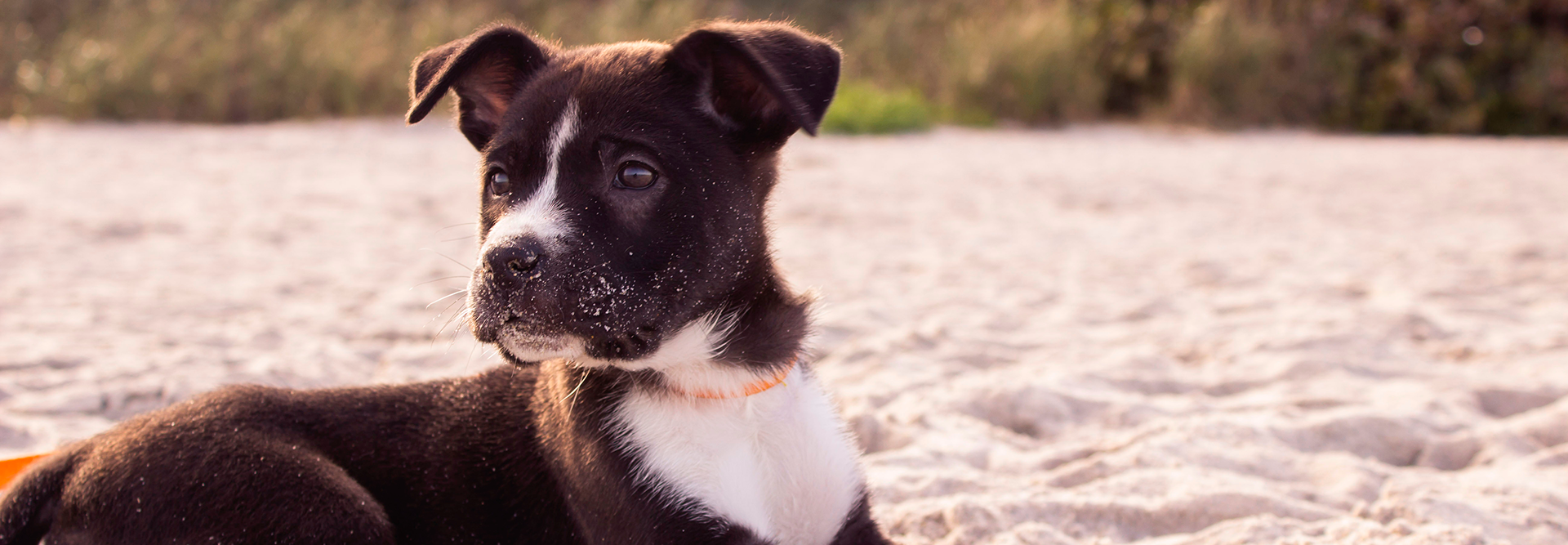
Does your puppy spin around in circles while obsessing over its tail? You may find it cute and even laugh at seeing your pup’s strange behavior. While we’re sure it makes for a worthy post on social media, a puppy that constantly chases their tail may have a serious issue that hasn’t been detected yet. […]
Does your puppy spin around in circles while obsessing over its tail? You may find it cute and even laugh at seeing your pup’s strange behavior. While we’re sure it makes for a worthy post on social media, a puppy that constantly chases their tail may have a serious issue that hasn’t been detected yet.
It’s important to uncover the root cause of your fur-baby’s tail-chasing so that you can help them get better. From anxious behavior to genetics, here are a few reasons your puppy may be chasing their tail.
Most puppies chase their tail for one reason: boredom. Young puppies are energetic and need lots of engaging activities to be content. If they have nothing to do, guess what? They’ll find something to entertain themselves. Some puppies may not even realize that their tail is another part of their body—to them, it’s just another toy! This stage is temporary so once they reach adulthood, their tail-chasing should go away.
Too much boredom can lead to anxious or compulsive behaviors that include tail-chasing. Your puppy’s compulsion may also be caused by injury, trauma, or another underlying condition. If left unaddressed, your puppy’s compulsion can worsen in adulthood, leading to destructive behavior. It isn’t uncommon to hear about dogs who’ve chewed their tails enough to require surgery.
Do you laugh and smile when your puppy spins after their tail? Positive reactions like laughter or praises will make your furry friend think their behavior is okay. They may also repeat the behavior to get your attention. When your puppy starts to go after their tail, stop the behavior and try engaging them in a fun game instead. There are various games you and your puppy can play and have fun together. Also, be sure to give your pup the attention and love they need from you through cuddles and kisses!
Take notice at how your puppy chases their tail. If you notice that they nip and chew after they catch it, there’s probably something else going on. They could have fleas, ticks, spinal abnormalities, or other health issues that’s bothering them. Schedule a trip to the vet and be sure to address all concerns about your pup’s behavior.
Some breeds like German Shepherds and Bull Terriers are more prone to tail-chasing than others. Although it’s still being studied, there are a few reasons why these wonderful dogs are likely to exhibit this behavior. As high-energy canines, they are more vulnerable under stressful situations, and may rely on tail-chasing as a way to alleviate the tension. Many dogs who develop a bad tail-chasing habit have usually stayed indoors for too long or lack sufficient socialization.
It may be hard to find the cause of your puppy’s habits so we recommend taking them to the vet as soon as you can. Tail-chasing looks adorable but it can lead to hair loss or other injuries if your pooch nips at it. If your puppy is suffering from compulsion, your vet may advise you on how to reduce their symptoms or even prescribe medications. Of course, there’s always a chance there’s nothing wrong with your furry friend but it’s better to be safe than sorry!
Do you wonder whether your puppy is healthy or not? Check out our 6 Signs Your Puppy is Healthy to find out more!